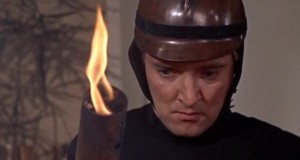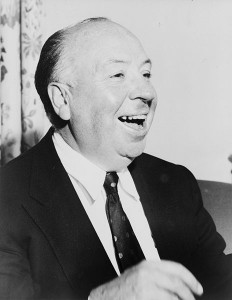Science fiction foretells the future with surprising frequency even if it doesn’t always hit the target it was actually aiming for. As predicted in Fahrenheit 451, Ray Bradbury’s dystopian 1950s story that François Truffaut adapted, books, with their printed pages of words and colorful covers, are indeed under siege. Their enemies aren’t the flames of totalitarianism, however, but technology, which is disappearing them into a succession of 0s and 1s. The paradox is, of course, that even as what we’ve long considered a book becomes more scarce, their essence is more available to more people on Earth than ever before.
Guy Montag (Oskar Werner) is a fireman, but he doesn’t extinguish blazes. In a future full of fireproof structures, his job is to locate and burn books, which have been deemed illegal, a bane of humanity, with their conflicting, critical and complicated ideas. Those who secretly possess them have their homes raided, their volumes burned to ash and they themselves are arrested. Montag isn’t doctrinaire about his work—it’s just a job and one that he tries to do well so that he can get promoted. But he’s forced to consider what he’s doing after a seemingly chance encounter with a stranger on a train (Julie Christie), who wonders if he ever gets curious about the ABC’s of his job: Austen, Beckett, Cervantes. Montag initially scoffs at the notion, but soon he’s peeking between covers and stashing books beneath furniture. He just can’t leave well enough alone like his wide-eyed wife (also Christie), who merrily doses herself with happy pills and stares placidly at insipid interactive television shows on the wall-screen.
Bradbury wrote the first version of the story in 1951, during the height of HUAC, and he was certainly critiquing the censorship of the day which tacitly attended that witch hunt. But his plot lines about the instant haze of pharmacological products and empowering, moronic amusements are right on target in our time. The idiotic entertainment flash on tiny screens in our pockets now, but so too do the books. How we balance those options will not be a tyrant’s choice but our own.•


